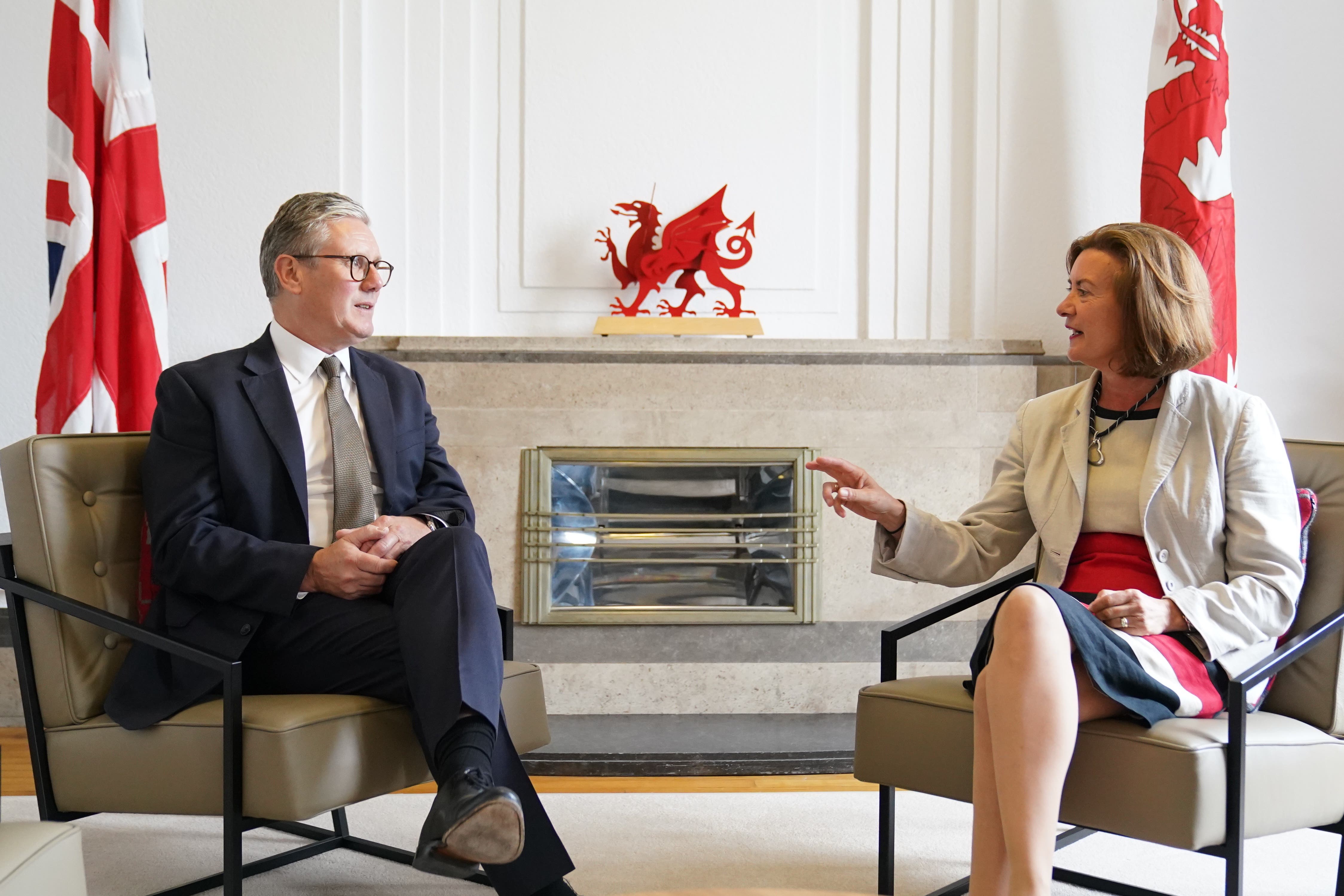Can devolution work better under a Labour government?
As Keir Starmer visits Northern Ireland and Wales and Anas Sarwar claims Scotland needs a Labour government in Edinburgh, John Rentoul assesses Labour’s devolution agenda


The prime minister anointed Eluned Morgan the new Labour first minister of Wales on Tuesday, making a two-day visit to the principality on his return from Northern Ireland. Meanwhile, Anas Sarwar, the Scottish Labour leader, has renewed his assault on the SNP government, which he hopes to replace in Scottish parliament elections in 2026.
After six weeks of a new government of the UK, let us take stock of how devolution might work differently under a Labour prime minister.
What is happening in Northern Ireland?
Keir Starmer’s visit to Northern Ireland was his second as prime minister because he toured all four parts of the UK in the days after the election. The two visits to Belfast in a short time show a commitment to making a success of the newly restored executive, led by Michelle O’Neill, the Sinn Fein first minister, and Emma Little-Pengelly, the DUP deputy, who is of constitutionally equal status.
Starmer is said to have a good understanding of Northern Irish politics from his time as an adviser to the Northern Ireland Policing Board, 2003-06.
However, devolution to Northern Ireland is a special case, tied up as it is with the power-sharing agreement that ended the IRA’s campaign of violence in 1998, and complicated as it now is with the post-Brexit status of the province, simultaneously part of the UK and part of the EU single market.
What about Wales?
This was Starmer’s second visit as prime minister to Wales as well. When he listened to a school choir with Vaughan Gething immediately after the general election, it was taken as a vote of confidence in the first minister. Gething was under pressure from fellow Labour members of the Senedd over a donation from a company accused of breaking environmental law. Starmer’s support failed to save him, however, and he stood down after 118 days.
So this time the prime minister looked at wind turbines with Morgan, and declared that Wales would be central to his ambition to make Britain a green energy superpower. The relationship between Westminster and Cardiff has been reset – the Conservative UK government constantly used Labour’s poor record of managing the NHS in Wales as a deflection from its own problems with the NHS in England. But the switch of rhetoric hasn’t made any of the problems of the NHS in either England or Wales magically better.
Equally, the change of national government has not yet made any difference to Tata Steel’s plan to close the blast furnace at Port Talbot next month.
And Scotland?
The advent of a Labour government in London has undoubtedly changed Scottish politics. One of the strongest drivers of nationalist sentiment since 2010 has been resentment of a Tory government in Westminster; a Labour government of the UK offers Scottish Labour the chance to sell the benefits of cooperation rather than confrontation.
Sarwar seized that chance the day after the general election, declaring: “These new Scottish Labour MPs aren’t going to Westminster to sit on the opposition benches to shout, to protest and ultimately come back with nothing.
“These Scottish Labour MPs are going to Westminster to sit on the government benches, to sit round the table, make decisions and help deliver for the people of Scotland. That’s the change that people have voted for.”
The SNP, already on the defensive after the collapse of Nicola Sturgeon’s government, continues to be so. Shona Robison, the finance secretary, imposed “emergency spending controls” last week, and confirmed that the Scottish government would follow the UK government in means-testing the winter fuel allowance. This was despite the SNP having the power under devolution law to raise taxes to keep the payment.
Are the devolution plans for England realistic?
Devolution to those parts of England that do not already have directly elected mayors was promised in Labour’s manifesto, under the cheeky slogan, “Take Back Control”. The manifesto also promised to “deepen devolution settlements for existing combined authorities”.
Critics see these plans as a bath of warm words about taking decisions closer to the people, when the new government also imposes national house-building and infrastructure targets and reduces the power of local people to object.
Until we find out how this apparent contradiction plays out in practice, it will be hard to judge what Labour meant in its manifesto when it promised: “We will deepen our democracy by reforming parliament and devolving power to communities.”
Join our commenting forum
Join thought-provoking conversations, follow other Independent readers and see their replies
Comments
Bookmark popover
Removed from bookmarks